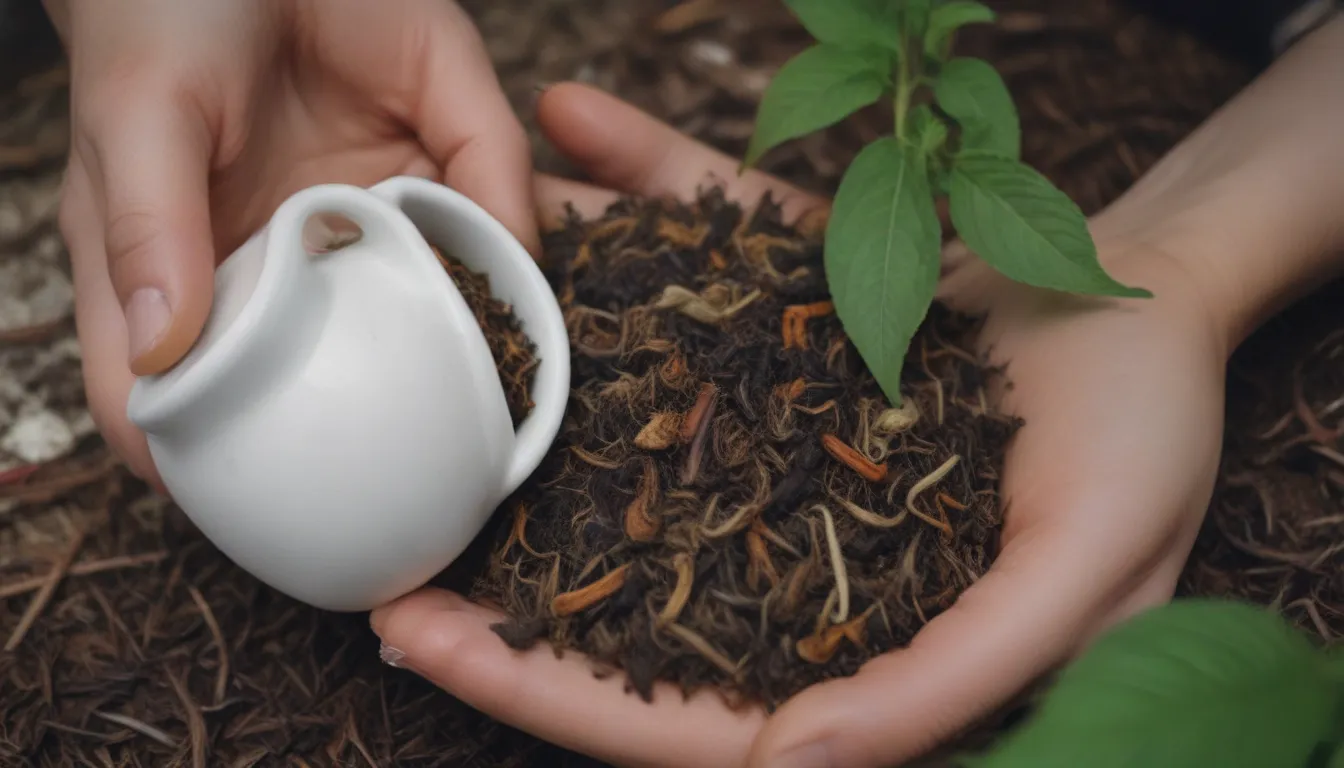The Ultimate Guide to Making Vermicompost Tea

If you’re an avid gardener or someone looking to improve the health of their plants, you may have come across the magical world of vermicomposting. In simple terms, vermicomposting is the process of using worms to break down organic waste into nutrient-rich compost called vermicompost or vermicastings.
Before we delve into the specifics of how to make vermicompost tea, let’s clarify the difference between vermicompost and vermicastings. Vermicompost refers to the compost produced by worms, while vermicastings specifically point to the worm waste or castings that are left behind.
There are various ways you can utilize vermicompost or vermicastings in your gardening endeavors. You can topdress your houseplants with it, mix it into your seed starting or potting soil, or use it to fertilize your plants. One excellent method to maximize the benefits of this nutrient-rich material is by making your own vermicompost tea.
Benefits of Vermicompost Tea
Vermicompost tea is like a superfood supplement for your plants. When you brew vermicompost in water, you create a liquid fertilizer that is easily absorbed by the soil and your plants. Here are some key benefits of using vermicompost tea:
- Nutrient Boost: Vermicompost tea provides a quick and easy way to nourish your plants with essential nutrients.
- Microbial Power: The beneficial microbes present in vermicompost tea can improve soil health and plant growth.
- Gentle on Plants: Unlike chemical fertilizers that can burn plants, vermicompost tea is a safe and gentle option for all types of plants.
How to Make Vermicompost Tea
There are a few methods you can use to brew vermicompost tea, depending on your preference and resources. Let’s explore two popular techniques:
Actively Aerated Compost Tea
This method involves aerating a mixture of water and vermicompost using an air pump for at least 24 hours. Here’s how you can make actively aerated compost tea:
- Place your vermicompost in a linen or fine mesh bag.
- Add the bag to a bucket of water.
- Install an air pump to continuously aerate the water and vermicompost.
- Let it aerate for at least 24 hours.
- Once ready, strain the mixture to remove the vermicompost.
- Your nutrient-rich vermicompost tea is now ready to use.
Many experienced gardeners highly recommend this method for its effectiveness in producing a high concentration of beneficial microbes.
Simple Steeping Method
If you’re looking for a more straightforward approach, you can opt for the simple steeping method. Here’s how you can make vermicompost tea using this technique:
- Add about 1/4 cup of vermicompost or vermicastings to a gallon of water.
- Allow the mixture to steep overnight.
- Strain the vermicompost by pouring the mixture through a fine sieve or filter.
- Your vermicompost tea is now ready for use.
Alternatively, you can place 1/4 cup of vermicompost into a paper coffee filter, tie it tightly with cotton twine, and add it to a watering can or bucket filled with water. Let it sit overnight to create a nutrient-rich tea for your plants.
Whether you choose the actively aerated compost tea method or the simple steeping method, both options provide an effective way to feed your plants with natural nutrients.
When to Feed Plants With Vermicompost Tea
Knowing when and how often to feed your plants with vermicompost tea is crucial for their overall health and growth. Here are some guidelines to help you schedule your plant feedings:
- Houseplants: Feed your houseplants with vermicompost tea weekly to every 10 days during the active growing season.
- Outdoor Plants: For vegetables and herbs in your garden, feed them with vermicompost tea at least once a week.
- Foliar Feeding: You can also use vermicompost tea as a foliar spray to nourish your plants’ leaves.
Some gardeners have reported improvements in plant health and pest resistance when using vermicompost tea regularly. It’s a simple and effective organic fertilizer that can benefit all your plants, both indoors and outdoors.
In conclusion, vermicompost tea is a valuable tool in any gardener’s arsenal. Whether you choose to brew actively aerated compost tea or opt for the simple steeping method, the nutrient-rich benefits of vermicompost tea will enhance the health and vitality of your plants. So, why not give it a try and watch your garden thrive with this natural elixir of plant goodness!
Compost Tea for Plant Health. University of Vermont.





